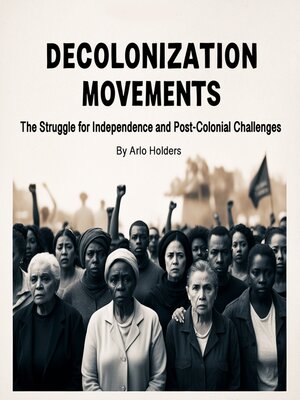Decolonization Movements
audiobook (Unabridged) ∣ The Struggle for Independence and Post-Colonial Challenges
By Arlo Holders

Sign up to save your library
With an OverDrive account, you can save your favorite libraries for at-a-glance information about availability. Find out more about OverDrive accounts.
Find this title in Libby, the library reading app by OverDrive.



Search for a digital library with this title
Title found at these libraries:
| Library Name | Distance |
|---|---|
| Loading... |
Decolonization refers to the process through which colonies gained independence from colonial powers, transitioning from subjugation to self-rule. This process unfolded across the globe, but particularly after the end of World War II, when the political, economic, and social landscapes of the world were rapidly changing. Decolonization was not merely a political transition; it also involved profound shifts in cultural, economic, and social structures. It marked the end of European empires, the dismantling of colonial systems, and the establishment of new nation-states. The effects of decolonization were not only seen in the immediate transfer of power but also in the long-lasting impacts on national identity, social cohesion, and global politics.
Historically, colonialism began in the 15th century as European powers, driven by the desire for resources, land, and global dominance, began to expand across the world. Colonies were established in Africa, Asia, the Middle East, and the Americas, often resulting in the exploitation and oppression of indigenous populations. Colonialism shaped the economies and cultures of colonized countries, as the colonial powers imposed their own systems of governance, language, and religion.
World War II played a significant role in the rise of decolonization movements. The war weakened the colonial powers, both economically and militarily, while at the same time igniting new ideas about self-determination and sovereignty. The brutal realities of war exposed the contradictions of imperialism, and the idea of a free and independent world began to gain ground. Additionally, the United Nations (UN) emerged after the war as an international body that championed the principles of self-determination and human rights, further encouraging movements for independence.







